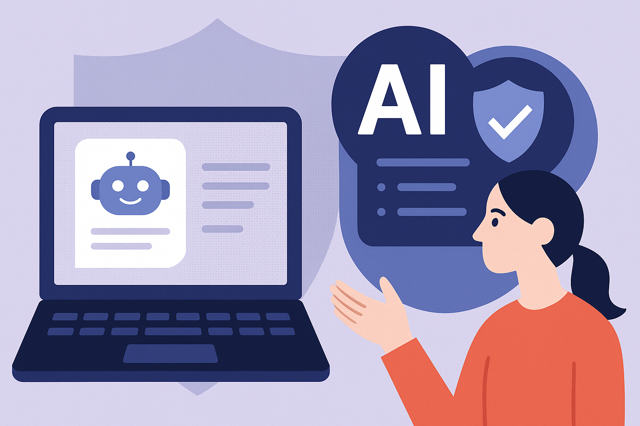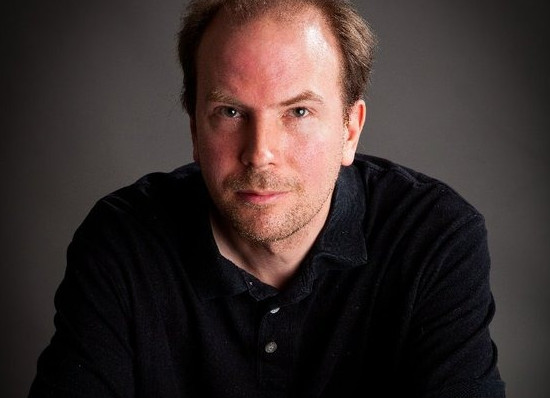< Back to news
Bert, you have a lot of experience with gamification. What role do you see for gamification in education?
Bert: Gamification and game-based learning are two different approaches. With gamification you increase the motivation of students by, for example, giving points and making them the leader of the game. Game-based learning goes one step further: it integrates learning material and skills into one game. This can be very effective if done properly. 


25 June 2024
AI: Useful tool or destructive to education? Interview with Bert Bredeweg
This month we are focused on AI in education. We spoke to Bert Bredeweg, Professor of Science education at the Amsterdam University of Applied Sciences and Associate Professor at the Institute for Informatics at the University of Amsterdam, about his vision of AI in education, the rapid rise of generative AI, and what according to him is necessary to jointly participate in this 'real' technological revolution.
What do you think are the biggest challenges in implementing AI in education?
Bert: I have the feeling that we still have to find our way in dealing with generative AI. It is important to keep students motivated to continue learning themselves, while we also want to make optimal use of AI to speed up processes. AI can help teachers create materials faster and more efficiently, and students are at risk of becoming dependent on AI. We could organize education in such a way that students continue to grow and learn, despite the availability of AI tools.
Bert: I have the feeling that we still have to find our way in dealing with generative AI. It is important to keep students motivated to continue learning themselves, while we also want to make optimal use of AI to speed up processes. AI can help teachers create materials faster and more efficiently, and students are at risk of becoming dependent on AI. We could organize education in such a way that students continue to grow and learn, despite the availability of AI tools.
Which practical applications of AI in education do you see as the most promising?
Bert: AI offers teachers time savings and increases the quality of their teaching materials. For students, AI can serve as an interactive tool that provides feedback and is adapted to their learning process. AI can act as a cognitive mentor that provides support, help and advice, without doing the work.
Bert: AI offers teachers time savings and increases the quality of their teaching materials. For students, AI can serve as an interactive tool that provides feedback and is adapted to their learning process. AI can act as a cognitive mentor that provides support, help and advice, without doing the work.
Bert, you have a lot of experience with gamification. What role do you see for gamification in education?
Bert: Gamification and game-based learning are two different approaches. With gamification you increase the motivation of students by, for example, giving points and making them the leader of the game. Game-based learning goes one step further: it integrates learning material and skills into one game. This can be very effective if done properly.
Are schools ready to get started with AI?
Bert: Schools are interested in technology and innovation, but are also practical. Teachers prefer something that is immediately usable. If new tools are easy to implement and contribute to the lesson, they are open to change. If it becomes too complicated, the motivation to use new tools often decreases. Teachers should receive support in AI and how to deal with it so that they understand the nature and how the tool works.
Bert: Schools are interested in technology and innovation, but are also practical. Teachers prefer something that is immediately usable. If new tools are easy to implement and contribute to the lesson, they are open to change. If it becomes too complicated, the motivation to use new tools often decreases. Teachers should receive support in AI and how to deal with it so that they understand the nature and how the tool works.
You have worked on qualitative reasoning and sustainability. How can AI be used to tackle complex issues in education?
Bert: Teachers cannot continuously supervise everyone individually, for example, because of the size of the classes. AI can automate tasks such as doing exercises with the student and providing feedback, allowing the teacher to focus on personal contact and guidance. AI can provide personalized feedback as students create knowledge in interactive media, helping students understand how things work.
Bert: Teachers cannot continuously supervise everyone individually, for example, because of the size of the classes. AI can automate tasks such as doing exercises with the student and providing feedback, allowing the teacher to focus on personal contact and guidance. AI can provide personalized feedback as students create knowledge in interactive media, helping students understand how things work.
What do you think of the rapid rise of generative AI?
Bert: New tools are inherent to human progress, and the speed of generative AI is enormous. The latest and greatest attract a lot of attention, but we must find the peace necessary for sustainable progress. I hope we find a balance between the power of AI and the value of humans.
Bert: New tools are inherent to human progress, and the speed of generative AI is enormous. The latest and greatest attract a lot of attention, but we must find the peace necessary for sustainable progress. I hope we find a balance between the power of AI and the value of humans.
What is something you would like to tell prospective students?
Bert: Nice question! It is important to have a broad orientation and to take the time to explore other fields such as philosophy, computer science and history in addition to your studies. The focus should be on broad development and learning from diverse perspectives to be able to look at this AI world through different lenses. I also think it is nice to learn from the past. That may sound a bit boring, but our history contains many answers that we can now very well reflect on the present.
Bert: Nice question! It is important to have a broad orientation and to take the time to explore other fields such as philosophy, computer science and history in addition to your studies. The focus should be on broad development and learning from diverse perspectives to be able to look at this AI world through different lenses. I also think it is nice to learn from the past. That may sound a bit boring, but our history contains many answers that we can now very well reflect on the present.
Published and written by Amsterdam AI.
Vergelijkbaar >
Similar news items

September 4
UvA launches proprietary AI chat environment for responsible use in education
On 1 September, the University of Amsterdam (UvA) will launch its own GenAI environment: UvA AI Chat. Students and lecturers can use the tool to safely and responsibly explore AI in education.
read more >

August 22
AI outwrites bestselling fantasy authors in short story challenge
A writing contest between humans and machines ended with a surprise: the top-rated story was written by AI, much to the dismay of fantasy author Mark Lawrence.
read more >

August 22
AI assistance may reduce doctors’ diagnostic sharpness
Doctors who rely on AI may become less accurate at spotting early signs of illness. New research highlights the risk of “deskilling” in medical AI use.
read more >